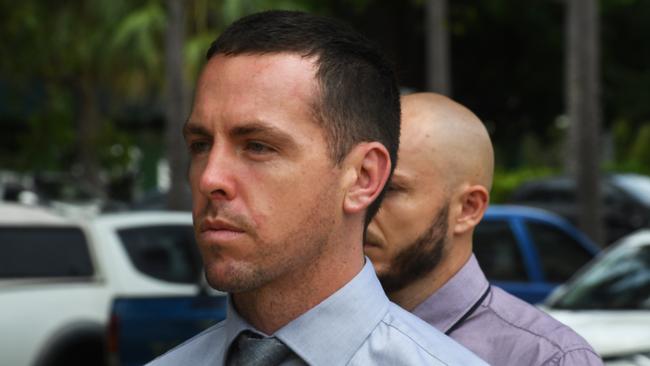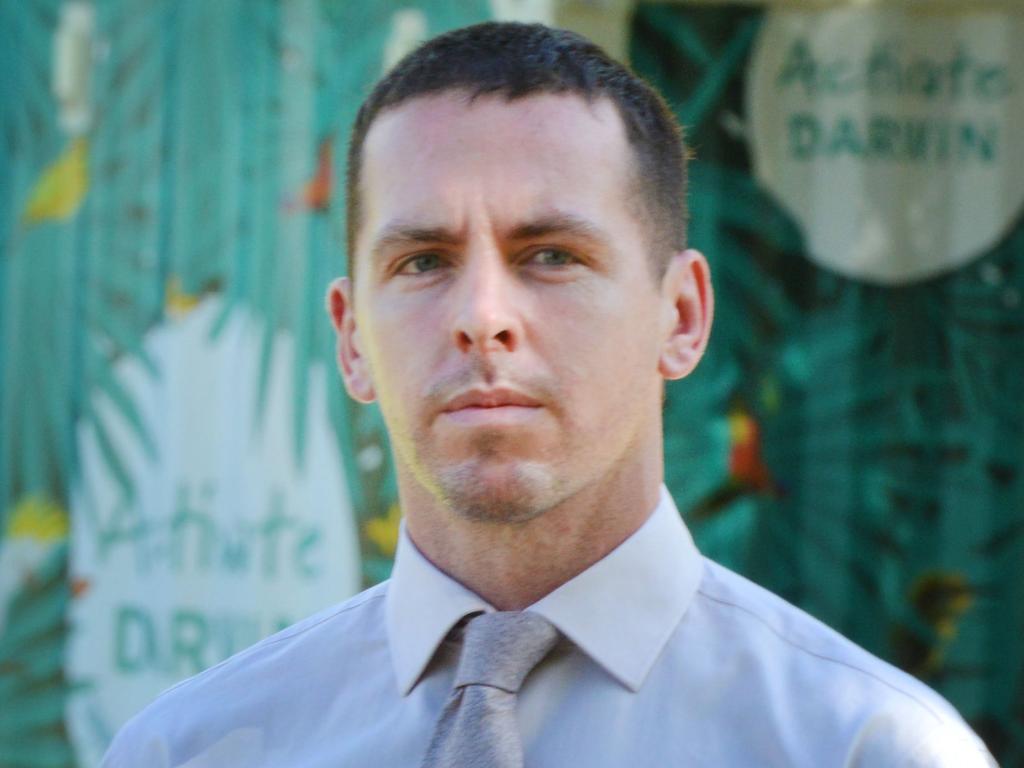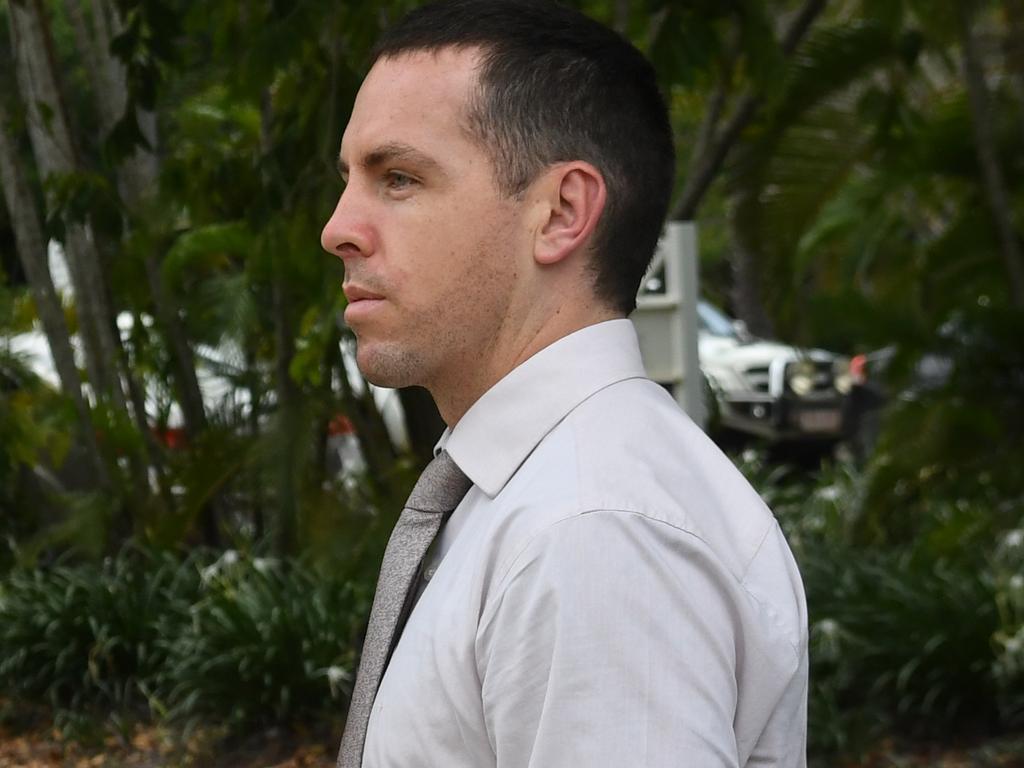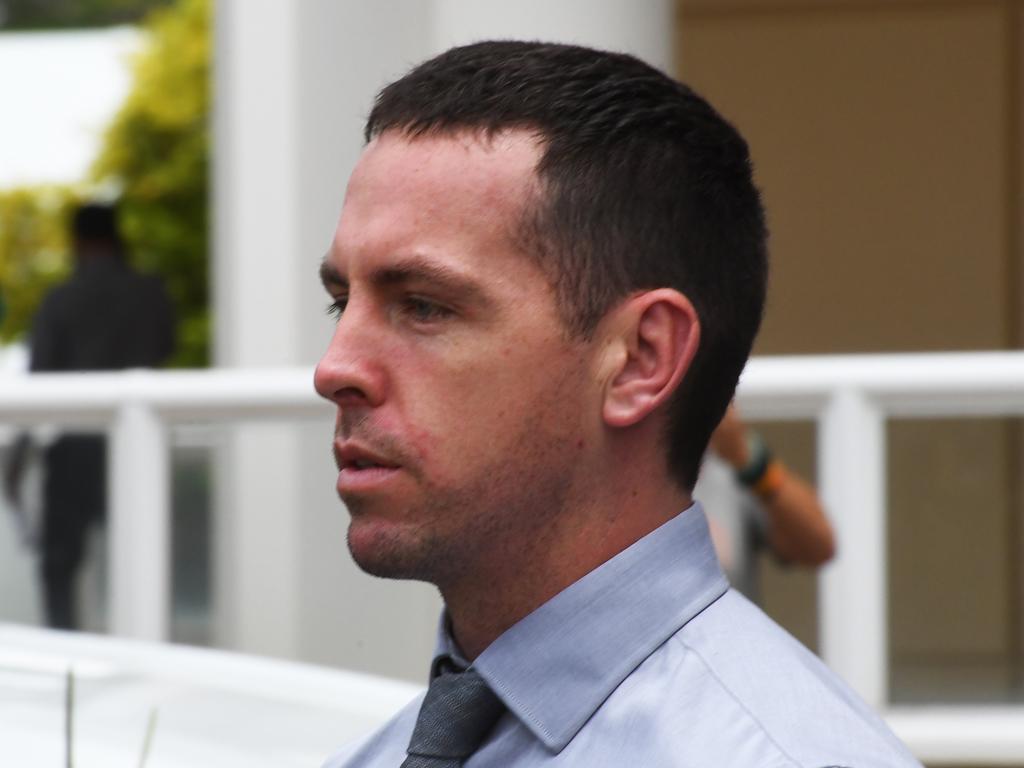Yuendumu: Police top brass and officers at odds over Kumanjayi Walker
NT police bosses were at odds with frontline officers about the purpose of deploying Zachary Rolfe’s Immediate Response Team to Yuendumu, court hears.

Northern Territory police bosses were at odds with frontline officers about the purpose of deploying Zachary Rolfe’s Immediate Response Team to Yuendumu.
Constable Rolfe, three IRT colleagues and a dog handler went to the troubled outback community on November 9, 2019, notionally to support local staff and help arrest Kumanjayi Walker, who was wanted for breaching a court order.
Constable Rolfe shot Walker three times after the latter stabbed him with scissors. He is now facing charges of murder, manslaughter and engaging in a violent act causing death.
Walker, 19, had threatened two Yuendumu-based constables with an axe three days prior.
Superintendent Jody Nobbs told the NT Supreme Court on Monday he was concerned about that when he asked for the IRT team to be deployed. He wanted the team to conduct “high visibility policing” to help restore law and order and to address problems with a series of break-ins that had caused health centre workers to flee the community. He directed any attempt to arrest Walker take place at 5am on Sunday so police would have the benefit of surprise.
“I more than endorsed (the plan); I articulated it as being my expectation,” he said.
“The 5am element … is a tried and tested framework … in terms of risk mitigation … it gives us … the cover of darkness … reduces things such as intoxications – it just gives us the element of surprise.”
Superintendent Nobbs’s instructions, agreed with Assistant Commissioner Travis Wurst, became part of orders drafted by Yuendumu officer-in-charge Sergeant Julie Frost. But Acting Sergeant Shane McCormack, who assembled and dispatched the IRT from Alice Springs, told the court he never saw that document. “The whole thing was to go out to Yuendumu to … find Walker and bring him back,” he said. “The whole (Alice Springs) station was aware of the axe incident.”
It remains unclear whose instructions Constable Rolfe was following when he and his colleagues set out earlier than Superintendent Nobbs’s plan, without local chaperones, and tracked down Walker on the Saturday night.
Defence barrister David Edwardson QC asked whether Superintendent Nobbs was aware Sergeant Frost had instructed the IRT to gather intelligence on Walker’s whereabouts.
“Knowing that would have been contrary to my, not explicit but certainly implicit, instructions to Sergeant Frost,” he said.
The court has heard differing accounts of the training given to general duties police and IRT members. It has also heard several interpretations of the maxim “knife equals gun”.
Constable Mitchell Hansen, an IRT member, described the general purpose of 10 key NT police operating principles as “the success of an operation will primarily be judged by the extent to which the use of force is minimised”.
Sergeant McCormack, a former IRT member, said there were circumstances where when confronted with an offender armed with a knife, it would be appropriate to discharge a “full clip” of bullets … reload and fire twice more.
Constable Rolfe shot Walker once while he was struggling and then twice more after his partner had taken Walker to the ground.
It is those latter two shots, fired 2.6 seconds after the first shot, that the prosecution says amount to murder. The trial continues.







